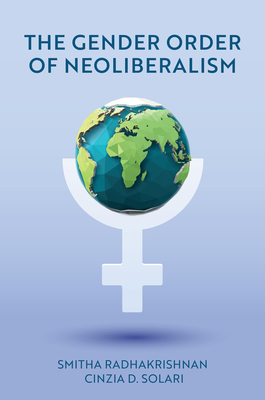The Gender Order of Neoliberalism

The Gender Order of Neoliberalism
In this ambitious book, Radhakrishnan and Solari map the varied gendered pathways of a global hegemonic regime. Focusing on the US, the former Soviet Union, and South and Southeast Asia, they argue that the interconnected histories of imperialism, socialism, and postcolonialism have converged in a new way since the fall of the Soviet Union, transforming the post-war international order that preceded it. Today, the ideal of the empowered woman - a striving, entrepreneurial subject who overcomes adversity and has many "choices" - symbolizes modernity for diverse countries competing for status in the global hierarchy. This ideal bridges the painful gap between aspiration and lived reality, but also spurs widespread discontent.
Blending social theory, rich empirical evidence, and a multi-sited understanding of neoliberalism, this book invites all of us to question taken-for-granted knowledge about gender and capitalism, and to look to grassroots international movements of the past to chart the path to a fairer future.
PRP: 161.91 Lei
Acesta este Prețul Recomandat de Producător. Prețul de vânzare al produsului este afișat mai jos.
129.53Lei
129.53Lei
161.91 LeiLivrare in 2-4 saptamani
Descrierea produsului
In this ambitious book, Radhakrishnan and Solari map the varied gendered pathways of a global hegemonic regime. Focusing on the US, the former Soviet Union, and South and Southeast Asia, they argue that the interconnected histories of imperialism, socialism, and postcolonialism have converged in a new way since the fall of the Soviet Union, transforming the post-war international order that preceded it. Today, the ideal of the empowered woman - a striving, entrepreneurial subject who overcomes adversity and has many "choices" - symbolizes modernity for diverse countries competing for status in the global hierarchy. This ideal bridges the painful gap between aspiration and lived reality, but also spurs widespread discontent.
Blending social theory, rich empirical evidence, and a multi-sited understanding of neoliberalism, this book invites all of us to question taken-for-granted knowledge about gender and capitalism, and to look to grassroots international movements of the past to chart the path to a fairer future.
Detaliile produsului









